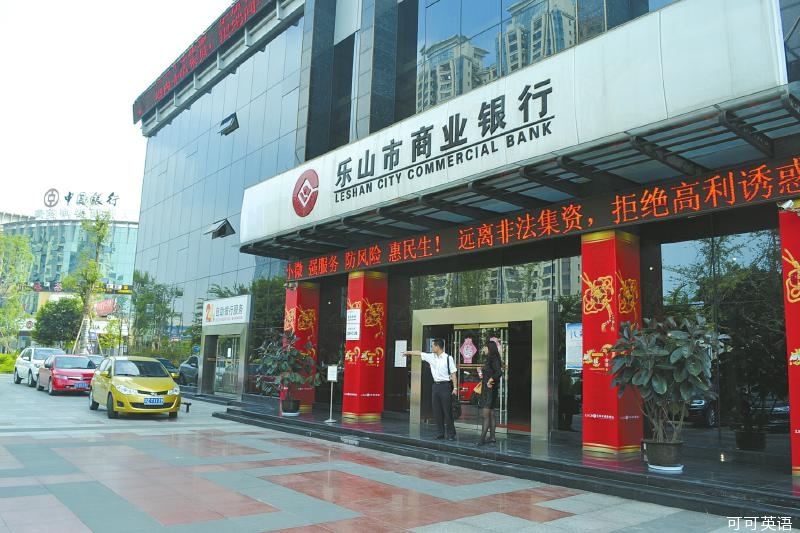(单词翻译:单击)

Less than 20 years ago, China's financial system was rotting and crippled by bad debt.
在不到20年前,中国金融系统缺乏活力,并饱受呆坏账的困扰。
After waves of reforms, the country's banks have been transformed into some of the world's largest and most-profitable corporations. Big problems remain, however. Among other issues, the banks take their cues more from politicians than from customers, and they focus their lending more on hidebound state-owned borrowers than the private companies that have turned the Chinese economy into an economic powerhouse.
在经过几轮改革之后,中国的商业银行已经脱胎换骨,跻身全球规模最大、最赚钱银行之列。不过中国金融系统仍然存在很大的问题。其中一个问题是,这些银行更多地听从政府的命令,而不是迎合客户,他们主要向墨守成规的国有企业发放贷款,而不是面向民营企业,但正是民营企业的发展壮大使得中国成为经济强国。
But now, the financial system is on the verge of another big change: forcing the banks to compete for customers by offering the best deals for depositors.
但是眼下,金融系统正在酝酿新一轮重大变革:促使商业银行通过向储户提供更高的利息来争夺客户。
'As with other financial-market reforms, deposits-rate liberalization is a welcome move, with long-term benefits, but poses some short-term risks, given all the other distortions that plague the financial system,' said Cornell University China specialist Eswar Prasad.
康奈尔大学(Cornell University)中国问题专家普拉萨德(Eswar Prasad)说,和其他金融市场改革措施一样,存款利率市场化是一个受欢迎的举措,这将带来长期益处,但是也会构成一些短期风险,因为还有其他一些事情没有理顺,从而困扰着金融系统。
Beginning in the 1990s, China spent hundreds of billions of dollars cleaning up the banks' balance sheets, a move that eventually led to the initial public offerings of the country's top four lenders, including Bank of China Ltd. and Industrial & Commercial Bank of China Ltd. The Chinese government, though, remains the biggest shareholder in the vast majority of the c ountry's banks, including Bank of China and ICBC.
从上世纪90年代开始,中国斥资数千亿美元清理银行坏账,此举最终推动中国四大国有银行上市,包括中国银行(Bank of China Ltd.)和工商银行(Industrial & Commercial Bank of China Ltd.)。不过中国政府仍然是最大股东,持有中国银行和工商银行等国有商业银行的绝大多数股权。
Now, the state-dominated banking system is moving steadily to adopt market principles while permitting the creation of privately funded banks as competitors. Last summer, Beijing scrapped controls over lending rates so that banks can price loans themselves. Following that, it began to permit banks to issue certain kinds of certificates of deposit aimed at big institutional investors, a move analysts say could pave the way for the launch of CDs aimed at ordinary Chinese savers.
目前以国有资本为主的银行体系正稳步采用自由市场经济原则,同时,政府还允许成立民营银行,作为市场竞争者存在。去年夏天,政府取消了对贷款利率的限制,银行可为自己的贷款定价。之后政府开始允许银行发行面向大型机构投资者的某些定存单,分析师们称,此举应为今后面向普通储户的定存单发行铺平道路。
As it gradually relaxed its control over interest rates, Beijing also moved toward a more market-based exchange-rate system, albeit at a much slower pace. Beginning in 2003, China gave foreign investors some limited ability to buy Chinese stocks in a plan that was expanded nine years later. In 2012, Beijing also freed the yuan to trade more freely against the dollar, although the government keeps a close hand on how much the currency can move day to day. In addition, it has promoted the use of the yuan in cross-border trading in the past five years.
随着政府逐步放松对利率的管控,中国也向更加市场化的汇率机制过渡,但步伐更慢一些。从2003年开始,中国为海外投资者买进中国股票开辟了一些有限的渠道,九年后外资投资于中国股市的计划被扩大。2012年,中国还扩大了人民币兑美元的自由波动范围,但政府仍严格控制日间的波动范围。此外,过去五年,中国还鼓励人民币在跨境交易中的使用。
Full liberalization of the currency, though, remains years away. Chinese officials say they worry that liberalizing cross-border fund flows too fast could lead to cash quickly leaving the country in the event of a crisis, potentially destabilizing China's financial system.
但人民币的完全市场化还有很长的路要走。中国官员们表示,他们担心过快放开跨境资金流动,在遭遇危机时,可能会导致资金快速撤出中国,有可能破坏中国金融系统的稳定。
Zhou Xiaochuan, the country's central banker, acknowledged that full liberalization of the yuan, also known as renminbi, remains a more-distant goal. 'We have a lot of homework to do before renminbi becomes an international currency,' he said at a press conference Tuesday. Part of that homework, he said, is to make the yuan a free-floating currency.
中国央行行长周小川承认,人民币完全国际化是一个相对漫长的过程。他在周二的记者会上表示,人民币走向国际化,还有很多“家庭作业”没有做好。他说,一部分“家庭作业”是让人民币成为自由浮动的货币。
And overhanging all the change is a deeper issue: Will liberalization of interest rates and capital flows accelerate credit growth? China's debt level already is expanding at a rate comparable to those in the U.S., Europe, Japan and South Korea before credit bubbles in those countries popped, throwing their economies into deep recessions.
所有这些改革都取决于一个更深层次的问题:利率市场化和放开资本管制是否将加快信贷增长?中国的债务增速已相当于欧美、日本和韩国信用泡沫形成前的水平,而信用泡沫令上述国家的经济陷入严重衰退。
Mr. Prasad, the Cornell economist, says new liberalization requires more-effective financial regulation, a tall order in a country where regulatory agencies often see one another as competitors, not colleagues. 'The question remains whether the regulatory framework is capable of managing the transition to a more open and market-determined financial system,' Mr. Prasad said.
康奈尔大学的经济学家普拉萨德说,进一步市场化需要更有效的金融监管来保障,一个国家中,如果监管机构之间相互将对方视为对手而不是同僚的话,这将是一项难以完成的任务。普拉萨德说,关键问题仍在于,监管架构是否有能力控制金融系统向更开放和市场化的机制转型。


